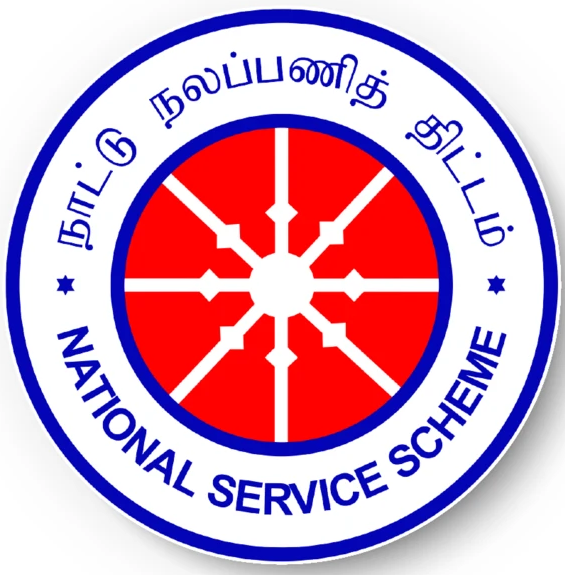About the National Service Scheme

The National Service Scheme (NSS) is an Indian governmentsponsored
public service program conducted by the Department of Youth Affairs and Sports of
the Government of India. Popularly known as NSS, the scheme was launched in Gandhiji's
Centenary year, 1969. Aimed at developing student's personality through community service,
NSS is a voluntary association of young people in Colleges, Universities and at +2 level working
for a campus-community linkage. The cardinal principle of the NSS programme is that it is
organized by the students themselves, and both students and teachers through their combined
participation in community service, get a sense of involvement in the tasks of nation building.
The post independence era was marked by an urge for introducing social service for students,
both as a measure of educational reform and as a means to improve the quality of educated manpower.
The University Grants Commission headed by Dr.Radhakrishnan recommended
introduction of national service in the academic institutions on a voluntary basis with a view to
developing healthy contacts between the students and teachers on the one hand and establishing a
constructive linkage between the campus and the community on the other hand.
In India, the idea of involving students in the task of national service dates back to the times of Mahatma Gandhi, the father of the nation. The central theme which he tried to impress upon his student audience time and again, was that they should always keep before them, their social responsibility. The first duty of the students should be, not to treat their period of study as one of the opportunities for indulgence in intellectual luxury, but for preparing themselves for final dedication in the service of those who provided the sinews of the nation with the national goods & services so essential to society. Advising them to form a living contact with the community in whose midst their institution is located, he suggested that instead of undertaking academic research about economic and social disability, the students should do "something positive so that the life of the villagers might be raised to a higher material and moral level".
In India, the idea of involving students in the task of national service dates back to the times of Mahatma Gandhi, the father of the nation. The central theme which he tried to impress upon his student audience time and again, was that they should always keep before them, their social responsibility. The first duty of the students should be, not to treat their period of study as one of the opportunities for indulgence in intellectual luxury, but for preparing themselves for final dedication in the service of those who provided the sinews of the nation with the national goods & services so essential to society. Advising them to form a living contact with the community in whose midst their institution is located, he suggested that instead of undertaking academic research about economic and social disability, the students should do "something positive so that the life of the villagers might be raised to a higher material and moral level".
Aims and objectives of National Service Scheme
The objective of the National Service
Scheme is “development of the personality of students through community service”. This
objective is sought to be achieved by enabling the students to work in community. The
programme aims to inculcate social welfare in students, and to provide service to society
without bias. NSS volunteers work to ensure that everyone who is needy gets help to enhance
their standard of living and lead a life of dignity. In doing so, volunteers learn from people in
villages how to lead a good life despite a scarcity of resources. it also provides help in natural
and man-made disasters by providing food,clothing and first aid to the disaster victims.
The main objectives of National Service Scheme (NSS) :
- To enable the students to understand the community in which they work;
- To understand themselves in relation to their community;
- To identify the needs and problems of the community and involve them in problem solving process;
- To develop among themselves a sense of social and civic responsibility;
- To utilize their knowledge in finding practical solutions to individual and community problems;
- To develop competence required for group-living and sharing of responsibilities;
- To Gain skills in mobilizing community participation;
- To acquire leadership qualities and democratic attitude;
- To develop capacity to meet emergencies and national disasters;
- To practice national integration and social harmony.


